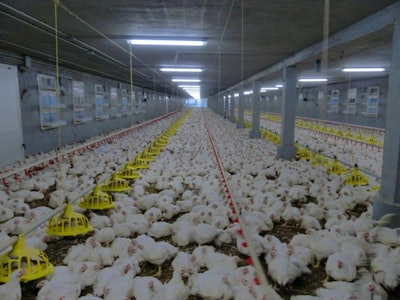
“In five years, the poultry industry will not be as we know.”
Anxo Mourelle, manager of SinergiaG6, in Pontevedra, Spain, told me this. It is clear, we have a lot of issues to solve before us: antibiotic-free production, animal welfare, changes in global trade or poultry diseases, but Anxo also referred to poultry farm management.
“Management,” he said, “is not important if we do not measure the wealth of information we have at the farm.” There is a huge amount of data — like temperature, humidity, ammonia, and CO2 levels, the daily weight of chickens, among other things — that tell us how chickens are and how the bottom line will be. Many times we even measure them and we do not take the necessary and immediate corrective measures. Time is worth gold in this case too.
Precision poultry farming deals with this. When we have the data by hand and we detect there is a variation, we must act immediately. Automation and equipment take care of this. We, human beings, are here to observe the data, through the technology offered by cellphones and other portable devices, and to make sure that the automatic equipment reacts properly on time, and if not, we must deal with it.
I had the opportunity to join Anxo on a visit to a farm near Pontevedra with precision equipment. It was a delight to see the impressive uniformity of the flock (both weight and distribution of the birds in the house) and that, despite the humid 30 degrees Celsius outside (86 F), the chickens were at a comfortable temperature of 22 C (72 F). The sensation was very peaceful inside the poultry house, and there was no ammonia in the environment. This is what I call animal welfare and good business because the perfect bird is delivered.
I think we are lucky to have the opportunity to continue improving, to be able to face different realities. If not, I think it would be very boring to work in the poultry industry. The reality of automation can be a more-than-profitable change. What do you think?
















